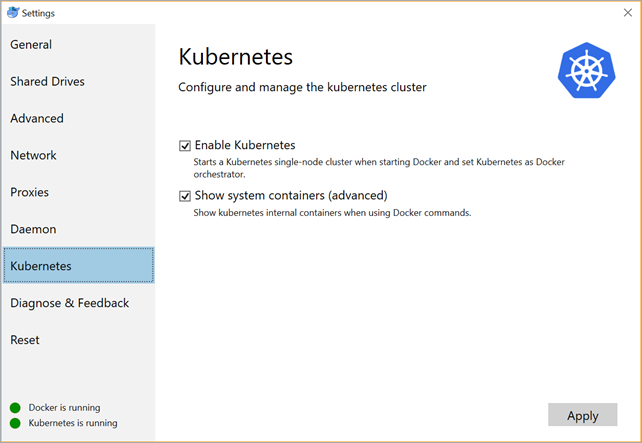

- #Docker for windows kubernetes taking long time to load portable#
- #Docker for windows kubernetes taking long time to load software#
Kubernetes takes the idea of containers and turns it up a notch. A modern Docker installation is divided into two services: containerd, responsible for managing containers, and dockerd, which does all the rest. As the project evolved, LXC was replaced by containerd, Docker’s own implementation. In its first iterations, Docker used Linux Containers (LXC) as the runtime backend.

The Dockerfile is the de-facto format for building container images.
#Docker for windows kubernetes taking long time to load software#
However, for all this to work, we need a container runtime, a piece of software capable of running containers. Another advantage is that we can run multiple copies of the same program simultaneously without conflict or overlap, something really hard to do otherwise.
#Docker for windows kubernetes taking long time to load portable#
For one thing, containers are portable we can build in one server with the confidence that it will work in any server. Running containerized applications is a lot more convenient than installing and configuring software.

Each application gets its own private network and a virtual filesystem that is not shared with other containers or the host. Later, the idea was refined and enhanced into container engines such as FreeBSD Jails, OpenVZ, or Linux Containers (LXC).Ī container is a logical partition where we can run applications isolated from the rest of the system. Chroot allowed system admins to run programs in a kind-but-not-really-isolated filesystem. Unix and Linux have had containers in some form or another since the late 70s, when chroot was introduced. If you’re already familiar with Docker and Kubernetes and want to get to the juicy parts, skip to how does the Dockershim deprecation impact you? What is a Container?Įven though Docker is used as a synonym for containers, the reality is that they have existed long before Docker was a thing. Will Kubernetes clusters break, and if so, how will we run our applications? What should we do now? Today, we’ll examine all these questions and more. This piece of news made the rounds through tech communities and social networks alike. A few weeks ago, the Kubernetes development team announced that they are deprecating Docker.


 0 kommentar(er)
0 kommentar(er)
